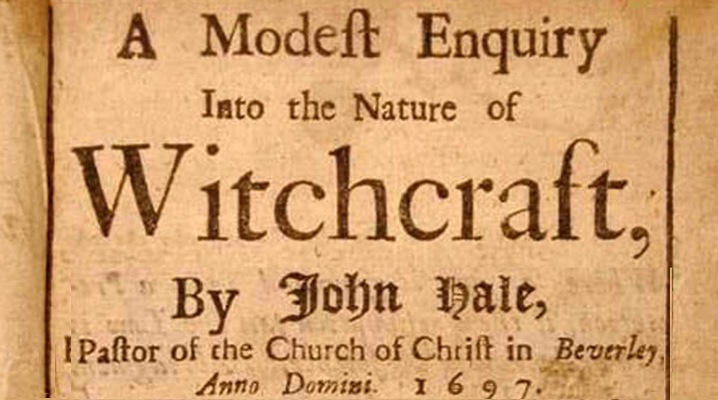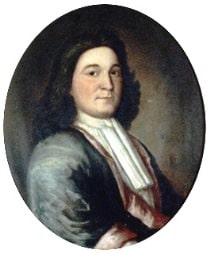John Hale was an influential member of the clergy in Beverly, Massachusetts Bay Colony, at the time of the Salem Witch Trials.
He supported the Salem Witch Trials for several months but later changed his mind and published a critique of them.
His book, A Modest Enquiry Into the Nature of Witchcraft, was published posthumously two years after his death. The book provides an alternative Christian theory for what actually happened in Salem in 1692, with Hale theorizing that demons impersonated the accused and appeared in their forms to the afflicted.
He most likely changed his views about those executed for "being witches" due to the fact that his own wife was accused of being a witch, though never prosecuted.

Early Life and Career
John Hale was born in 1636 in Massachusetts Bay Colony and was the son of a local blacksmith, Robert Hale.
He went to Harvard in 1657, where he studied theology. After graduating, he began work as a teacher and tutor. As he began to be noticed, he was invited to preach at the First Baptist Church in Beverly and would eventually become the first official pastor of the church in 1667.
The church gifted him 200 acres of pastureland for him and his family.
Three years prior to becoming the first official pastor of the church, he married his first wife, Rebecca Byly. The two would go on to have a good marriage until her death in 1683 at the age of 45. He would remarry a year later to Sarah Noyes.
Prior to the Salem Witch Trials, John Hale became chaplain to the Massachusetts Militia and served with them during a campaign to capture a fortress of Louisburg.
Salem Witch Trials
Hale had many connections and was a highly influential man in the Massachusetts Bay Colony. When he was approached by Samuel Parris as to why the afflicted were acting so hysterical, he would be the first to suggest that they would need to investigate and find those that were afflicting them.
Unfortunately, that decision would lead to the use of spectral evidence and many accusations, which would eventually be towards his wife.
History of Massachusetts Blog uses the book The Salem Witch Trials: A Reference Guide to detail his involvement in the trials:
“When their behavior did not improve, Reverend Hale was among the foremost ministers intent upon seeking out and eliminating the witches responsible. As the episodes expanded and intensified, Hale was called upon to testify against members of his congregation, and he became more deeply involved in the proceedings. As the number of cases grew, Hale became less vocal and visibly less involved. By the fall, accusations were leveled at Hale’s wife, Sarah, who was so far above reproach that she was never in serious danger. Nevertheless, Hale seems to have at some point changed his opinion concerning the way in which the trials were conducted and the advisability of using the testimony of the afflicted children.”
It seems to suggest that Hale was uncomfortable with the trials and how they were being conducted. His wife, then being accused of witchcraft, completely shifted his opinion against the trials.

At the time of his wife being accused, Governor William Phips had already begun disrupting the trials by replacing the court, forbidding the use of spectral evidence, keeping those who were newly accused out of jail until trial, and other reforms that made it much more difficult to convict and execute those that were accused. This would mean that at the time his wife was accused, she would not be thrown in jail based on the accusation.
Three years after the trials had ended, his wife Sarah passed away, and he began work on his book titled A Modest Inquiry into the Nature of Witchcraft, which challenged much of what happened at the Salem Witch Trials and even questioned the religious principles of witch hunts.
The book would be published in 1702, two years after John Hale's death in 1700.
It is unfortunate that Hale did not have a change of mind before the executions. He was an influential figure in Salem and could have possibly saved those who were executed.
John Hale would be the Great-Grandfather of American Revolutionary War patriot Nathan Hale.
